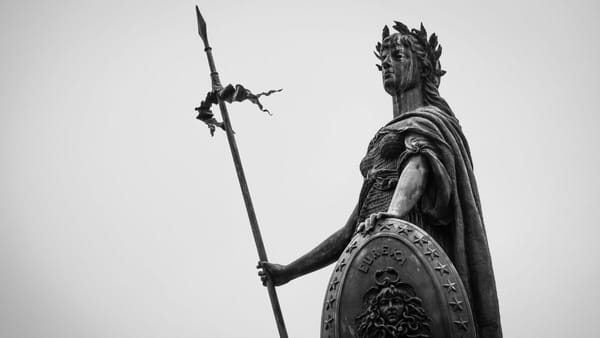In these increasingly chaotic times, amid constant noise and polarization, literature often serves as a quiet refuge—an essential reminder of our shared humanity. Few authors capture the complexity of human existence with the clarity and poignancy of Albert Camus. His novels explore the absurdity of life, the search for meaning, and our persistent rebellion against existential despair. Camus's work offers not just intellectual stimulation but genuine spiritual exploration. Here, we delve into five essential Albert Camus books, each a profound exploration of life's biggest questions.
Why Read Albert Camus?
Albert Camus wasn’t just a novelist; he was a philosopher whose ideas shaped the way we think about existence, morality, and freedom. Camus embraced absurdity—the conflict between humanity's desire for meaning and a universe indifferent to our struggles. His works don't merely entertain; they provoke deep introspection, challenging readers to reconsider their values and beliefs. Reading Camus is like engaging in a quiet conversation with a profound thinker, similar to Dostoevsky's psychological masterpieces or Orwell’s dystopian visions. Through his existential narratives, readers find both discomfort and liberation—a meaningful paradox reflecting life's essence.
The Stranger by Albert Camus
Arguably Camus’s most iconic novel, "The Stranger" explores existentialism and absurdism through Meursault, a man whose emotional detachment leads him into a moral quandary after he commits an impulsive crime. What makes this book essential reading is its raw examination of alienation and indifference, elements strikingly relevant in our disconnected modern world. Camus doesn't offer easy answers or comforting illusions. Instead, he lays bare the starkness of existence and the arbitrary nature of society's morality. Much like Orwell's dystopian classics, Camus challenges readers to question the norms we accept without thought, ultimately pushing us toward authentic self-awareness.
The Plague by Albert Camus
"The Plague" feels especially relevant today, a narrative about an epidemic sweeping through the Algerian city of Oran, forcing inhabitants into quarantine. However, beyond its surface plot, the novel serves as a powerful allegory for human resilience in the face of senseless suffering. Camus subtly prompts readers to consider solidarity, courage, and moral responsibility. This profound narrative shares thematic connections with other literary classics on peace and humanity’s persistent search for meaning amid chaos, reminding readers that collective hope and individual integrity remain our greatest defenses against existential despair.
The Myth of Sisyphus by Albert Camus
Though technically an essay, "The Myth of Sisyphus" is indispensable for understanding Camus’s philosophy. Using the Greek myth as a metaphor for the absurdity of human existence, Camus explores why, despite life's inherent meaninglessness, suicide is not the answer. Instead, he advocates embracing absurdity as a source of freedom and rebellion. This perspective aligns with other philosophy classics, inspiring readers to confront existential questions bravely, affirming life’s value precisely because of its fleeting and inexplicable nature.
The Fall by Albert Camus
"The Fall" introduces readers to Jean-Baptiste Clamence, a lawyer whose self-reflective monologue uncovers profound truths about hypocrisy, guilt, and human fallibility. Camus’s sharp critique of society’s moral pretenses echoes the themes of satirical classics, exposing uncomfortable truths about human nature with biting wit. The narrative forces readers to confront their own duplicities, urging authentic self-awareness and humility. In essence, Camus invites us to acknowledge our shared imperfections as the foundation for genuine compassion and personal growth.
The Rebel by Albert Camus
"The Rebel" transcends traditional literary categories, combining philosophical inquiry with historical analysis. Camus examines rebellion not merely as political action but as a fundamental human impulse to resist oppression and assert dignity. Drawing parallels with revolutionary classics, he contends that true rebellion must reject nihilism and embrace human solidarity and ethical limits. This book offers essential insights for anyone seeking a deeper understanding of personal and collective freedom.
Embracing Camus's Vision Today
Albert Camus’s works remain profoundly influential because they speak directly to our existential anxieties and ethical dilemmas. His books encourage us to confront rather than escape life's inherent contradictions, embracing the absurdity not as despair but as a source of genuine freedom. Whether it's the existential detachment in "The Stranger," the solidarity found amidst catastrophe in "The Plague," the rebellious defiance in "The Myth of Sisyphus," the honest introspection in "The Fall," or the nuanced vision of rebellion in "The Rebel," Camus offers invaluable perspectives that resonate powerfully in our contemporary context.
Much like other literary masterpieces from Orwell, Kafka, or Dostoevsky, Camus’s novels compel us to question accepted narratives, prompting a personal journey toward deeper self-understanding. In reading Camus, we find not only profound philosophical insights but also a comforting solidarity—an understanding that our struggle for meaning is universal, timeless, and deeply human. Ultimately, Camus doesn't promise clear answers; instead, he invites us to live authentically, courageously embracing life’s inherent uncertainties. In today’s restless, uncertain world, perhaps that's exactly the message we need most.
Thanks for reading. If this list helped you discover something new — or rediscover something old — you’re welcome to keep exploring:












